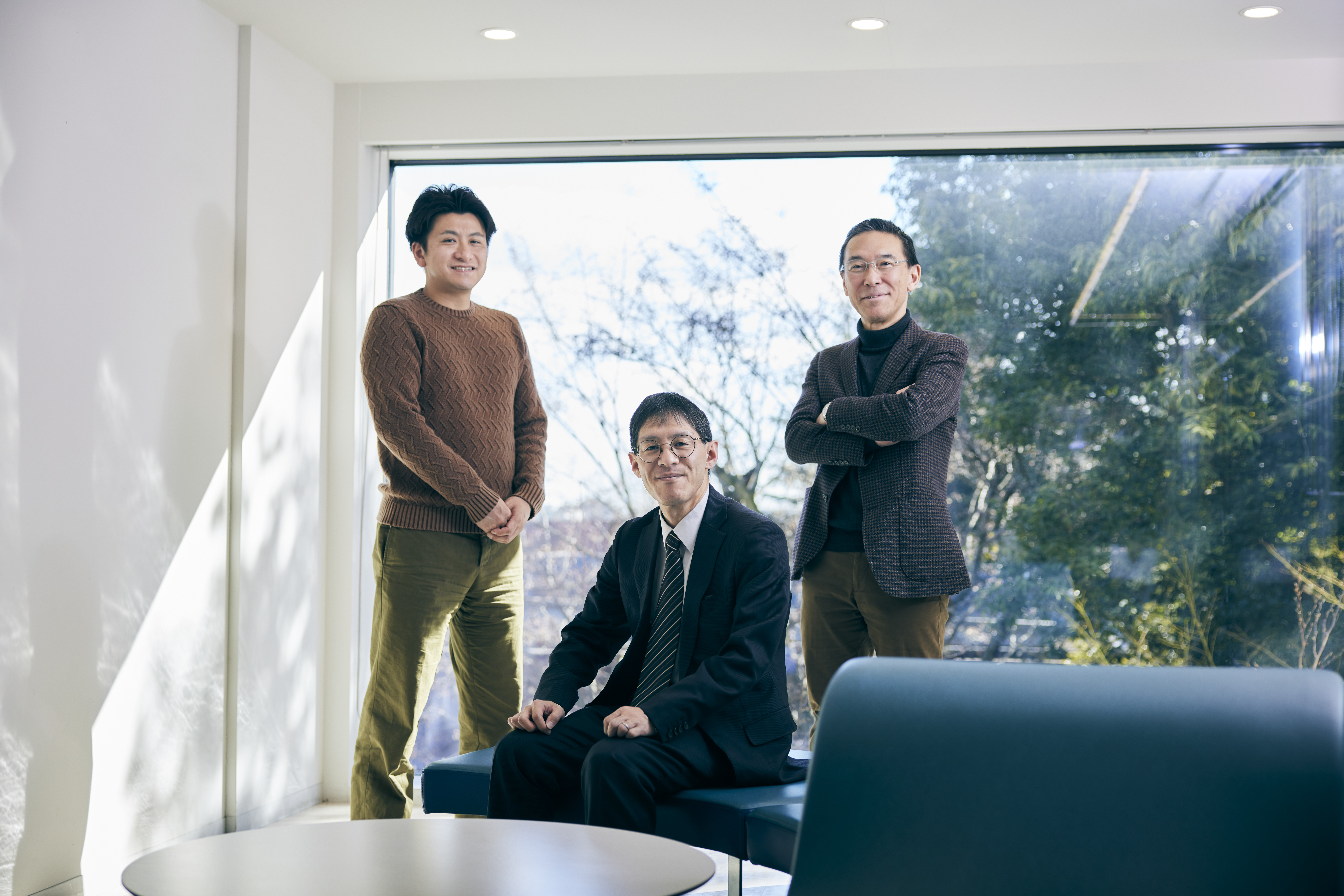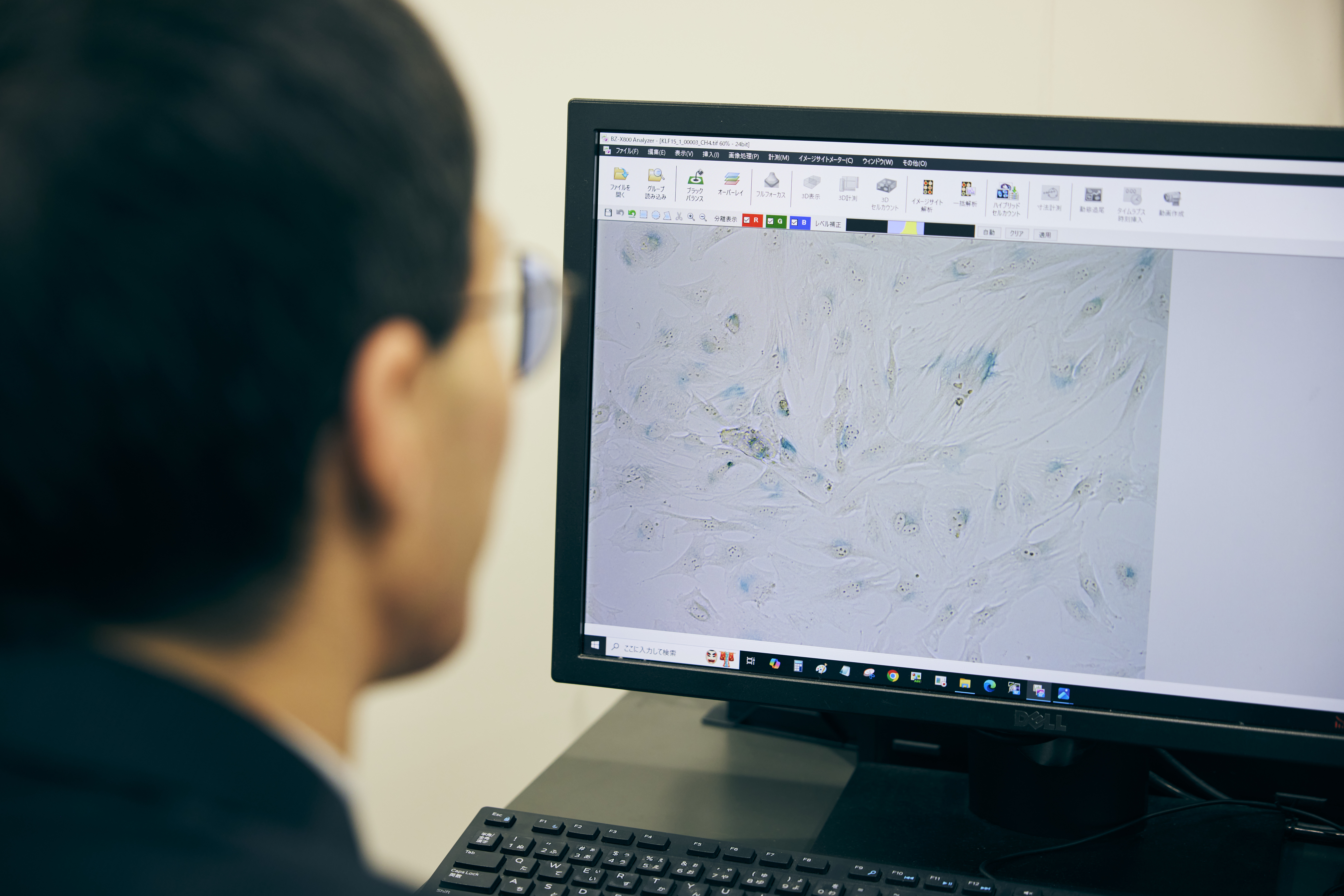The Division of Aging Biology was founded at Tokyo University of Science in 2024. Research into the science of aging has been active for quite a while and produced many results. The mission of the new research division is to bring together all of those researchers and their productive research to achieve something completely new. The essence of the research is to clarify how aging works and to build up the knowledge and skills needed to overcome aging itself, and that mission will not waver. Although perpetual youth and immortality may be the biggest topics facing humanity as a whole, a more immediate goal is to achieve productive aging that enables people to continue contributing productively to society no matter how old they become. Up to the present day, aging was the inexorable fate of every person, and it was considered natural that as we age, we become incapable of doing more and more things. However, since aging is a phenomenon of acquired changes caused by a variety of factors, there is increasing recognition that aging is a sort of illness. The division's research continues to tackle a wide range of topics focusing on factors controlling aging that change due to lifestyle habits and other elements, with a particular focus on four groups: lipids and water-soluble metabolites, mitochondria, the epigenome, and immune function.

Many researchers have joined the Division of Aging Biology. Professor Nakamura has studied the role played by phospholipids in cells and internal organs in the body. In the course of that, Nakamura found a possibility that phospholipids may be a factor controlling aging and shifted to focus on aging research. As Professor Nakamura explains it, “In working to determine how changes in lipids affect other factors controlling aging like epigenomes, mitochondria function, and immune function, it is difficult for individual researchers who specialize in lipids to conduct research efficiently alone, but within this research division, specialists in different fields can seek out each other’s cooperation in the form of joint research.” Professor Higami studies changes in mitochondria within fat tissue caused by calorie restrictions. He says that mitochondria’s quality control and function maintenance are key to controlling aging. Professor Maezawa studies germ cells. The phenomenon of the properties of aging being passed down across generations has been discovered and is a focus of attention, and Maezawa’s research focuses on changes in epigenomes due to age and changes in epigenomes inside germ cells. Although it is of course important to pursue deeper research on the many individual factors controlling aging, one of the biggest strengths of aging research at the Tokyo University of Science is that it can also look at how these factors are related to each other.

There are many essential factors to research that aims to overcome aging itself, and one of the most important research themes is the establishment of indicators by which aging can be accurately measured. Once we are able to measure the status of a person's aging process, it becomes easier for researchers to confirm research outcomes and ordinary people in society at large will be able to understand the status of their own aging. According to Professor Nakamura, “Even in the research division, we are in the process of discovering factors in the bloodstream and elsewhere that could serve as markers. I hope we will be able to bring a lot of different findings together to ultimately achieve this.” If health management comes to encompass aging management as well, and if that aging itself can be treated as a sort of illness, this will clearly lead to great innovation in society. From deep research focused on a single theme to broader, comprehensive research, the Tokyo University of Science is pursuing research that enables all people to live more productive lives.
■ Main research themes
■ Main research themes
■ Main research themes